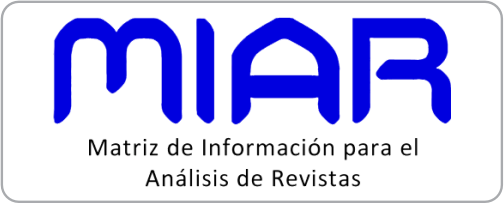Reusing computers with Linux Terminal Server Project
DOI:
https://doi.org/10.51252/rcsi.v1i1.117Keywords:
electronics, management, performance, wasteAbstract
The increase in waste electrical electronic equipment has been a topic discussed since the beginning of the century, in many countries there is a deficient legal frame-work for its management. In addition, there is a trend of a circular economy that determines that reuse is the best option for this management. Since 2019, Peru has established standards for the management this waste especially for reuse, at the National University of San Martín - Tarapoto its application was necessary due to the large amount of outdated computer equipment. The objectives were to reuse the outdated computers with the use of the Linux Terminal Server Project, to establish the procedure for the identification and reuse of the computers, to implement the Linux Terminal Server Project and to measure the results of reuse compared to up-dated computers. It was an applied research, of an experimental type, with cross-section, the study population was 40 computers, the sample was 6 computers, the technique used was the survey, the instrument was a questionnaire applied to 2 groups of computer equipment, the first outdated computer equipment and the second one to current computer equipment, it was concluded that, with the implementation of Linux Terminal Server Project, a higher performance was achieved for the outdated computer equipment, reaching the level of a modern computer equipment. They also have a positive impact on the environment and on prolonging the useful life of outdated computer equipment
Downloads
References
André, H., Ljunggren Söderman, M., and Nordelöf, A. (2019). Resource and environmental impacts of using second-hand laptop computers: A case study of commercial reuse. Waste Management, 88, 268–279. https://doi.org/10.1016/j.wasman.2019.03.050
Awasthi, A. K., and Li, J. (2017). Management of electrical and electronic waste: A comparative evaluation of China and India. Renewable and Sustainable Energy Reviews, 76(February), 434–447. https://doi.org/10.1016/j.rser.2017.02.067
Balde, C. P., Forti, V., Gray, V., Kuehr, R., and Stegmann, P. (2017). The Global E-waste Monitor 2017: Quantities, Flows and Resources. Retrieved from https://collections.unu.edu/view/UNU:6341
Bressanelli, G., Saccani, N., Pigosso, D. C. A., and Perona, M. (2020). Circular Economy in the WEEE industry: a systematic literature review and a research agenda. Sustainable Production and Consumption, 23, 174–188. https://doi.org/10.1016/j.spc.2020.05.007
Caetano, M. O., de Leon, L. G., Padilha, D. W., and Gomes, L. P. (2019). Risk analysis in the operation of waste electrical and electronic equipment recycling plants. Gestao e Producao, 26(2), 1–12. https://doi.org/10.1590/0104-530X3018-19
Calpa-Oliva, J. E. (2020). Validación de un modelo de logística inversa para la recuperación de los RAEE de la ciudad de Cali, basado en el Pensamiento Sistémico usando una simulación con Dinámica de Sistemas. TecnoLógicas, 23(48), 55–81. https://doi.org/10.22430/22565337.1418
Clinckspoor, G. L., and Ferraro, R. F. (2020). Analysis of the actors involved in the treatment of electronic waste from information and communication technologies (ICT), in the City of Mar del Plata. Antipoda, 2020(39), 41–64. https://doi.org/10.7440/antipoda39.2020.03
Cole, C., Gnanapragasam, A., Cooper, T., and Singh, J. (2019). An assessment of achievements of the WEEE Directive in promoting movement up the waste hierarchy: experiences in the UK. Waste Management, 87, 417–427. https://doi.org/10.1016/j.wasman.2019.01.046
Coughlan, D., Fitzpatrick, C., and McMahon, M. (2018). Repurposing end of life notebook computers from consumer WEEE as thin client computers – A hybrid end of life strategy for the Circular Economy in electronics. Journal of Cleaner Production, 192, 809–820. https://doi.org/10.1016/j.jclepro.2018.05.029
Cruz Sotelo, S. E., Bovea Edo, M. D., Ojeda Benitez, S., Santillán Soto, N., and García Cueto, O. R. (2017). Evaluación del impacto ambiental al extender la vida útil del teléfono móvil. Revista Internacional de Contaminacion Ambiental, 33(4), 701–712. https://doi.org/10.20937/RICA.2017.33.04.13
Demajorovic, J., Augusto, E. E. F., and De Souza, M. T. S. (2016). Reverse logistics of E-waste in developing countries: Challenges and prospects for the Brazilian model. Ambiente e Sociedade, 19(2), 117–136. https://doi.org/10.1590/1809-4422ASOC141545V1922016
Garlapati, V. K. (2016). E-waste in India and developed countries: Management, recycling, business and biotechnological initiatives. Renewable and Sustainable Energy Reviews, 54, 874–881. https://doi.org/10.1016/j.rser.2015.10.106
Habib Al Razi, K. M. (2016). Resourceful recycling process of waste desktop computers: A review study. Resources, Conservation and Recycling, 110, 30–47. https://doi.org/10.1016/j.resconrec.2016.03.017
Horta Arduin, R., Mathieux, F., Huisman, J., Blengini, G. A., Charbuillet, C., Wagner, M., … Perry, N. (2020). Novel indicators to better monitor the collection and recovery of (critical) raw materials in WEEE: Focus on screens. Resources, Conservation and Recycling, 157(July 2019), 104772. https://doi.org/10.1016/j.resconrec.2020.104772
Kumar, A., Holuszko, M., and Espinosa, D. C. R. (2017). E-waste: An overview on generation, collection, legislation and recycling practices. Resources, Conservation and Recycling, 122, 32–42. https://doi.org/10.1016/j.resconrec.2017.01.018
Lopes dos Santos, K. (2020). Waste electrical and electronic equipment in macrometropole paulista: Legal framework and technology at the service of reverse logistics. Ambiente e Sociedade, 23, 1211. https://doi.org/10.1590/1809-4422ASOC20190121R1VU2020L2DE
Orlins, S., and Guan, D. (2016). China’s toxic informal e-waste recycling: Local approaches to a global environmental problem. Journal of Cleaner Production, 114(2015), 71–80. https://doi.org/10.1016/j.jclepro.2015.05.090
Pereira-García, A. (2020). Free software law projects in Colombia. Revista Brasileira de Ciencias Sociais, 35(104). https://doi.org/10.1590/3510406/2020
Porcelli, A. M., and Martínez, A. N. (2018). Análisis legislativo del paradigma de la economía circular. Revista Direito GV, 14(3), 1067–1105. https://doi.org/10.1590/2317-6172201840
Redondo, J. M., Ibarra-Vega, D., Monroy, L., and Bermúdez, J. (2018). Assessment strategies for the integral management of waste electrical and electronic equipment-WEEE. DYNA (Colombia), 85(205), 319–327. https://doi.org/10.15446/dyna.v85n205.62564
Rodríguez-Reséndiz, P. O., Simonnot, J., and Abad Martínez, D. C. (2018). Open source content managment for digital sound archives that preserve research materials. Investigacion Bibliotecologica, 32(77), 101–115. https://doi.org/10.22201/iibi.24488321xe.2018.77.58005
Ruiz Morales, M. (2017). Contexto y evolución del plan de manejo integral de residuos sólidos en la Universidad Iberoamericana, ciudad de México. Revista Internacional de Contaminacion Ambiental, 33(2), 337–346. https://doi.org/10.20937/RICA.2017.33.02.14
Salles, A. C., Alves, A. P. F., Dolci, D. B., and Lunardi, G. L. (2016). Tecnologia da Informação Verde: Um Estudo sobre sua Adoção nas Organizações. Revista de Administração Contemporânea, 20(1), 41–63. https://doi.org/10.1590/1982-7849rac20161887
Theis, V., and Schreiber, D. (2016). Green IT Strategies and Applications: Using Environmental Intelligence. Bhuvan Unhelkar. Boca Raton, Flórida: CRC Press, 2011. 480 p. ISBN 978-14-3983-780-1. Revista de Administração Contemporânea, 20(1), 131–133. https://doi.org/10.1590/1982-7849rac2016150189
Wang, Z., Guo, D., and Wang, X. (2016). Determinants of residents’ e-waste recycling behaviour intentions: Evidence from China. Journal of Cleaner Production, 137, 850–860. https://doi.org/10.1016/j.jclepro.2016.07.155
Zeng, X., Yang, C., Chiang, J. F., and Li, J. (2017). Innovating e-waste management: From macroscopic to microscopic scales. Science of the Total Environment, 575, 1–5. https://doi.org/10.1016/j.scitotenv.2016.09.078
Published
How to Cite
Issue
Section
License
Copyright (c) 2021 Silvia Karol Sánchez Gárate , Edith Barón Ramírez, Cristian Werner García Estrella

This work is licensed under a Creative Commons Attribution 4.0 International License.
The authors retain their rights:
a. The authors retain their trademark and patent rights, as well as any process or procedure described in the article.
b. The authors retain the right to share, copy, distribute, execute and publicly communicate the article published in the Revista Científica de Sistemas e Informática (RCSI) (for example, place it in an institutional repository or publish it in a book), with an acknowledgment of its initial publication in the RCSI.
c. Authors retain the right to make a subsequent publication of their work, to use the article or any part of it (for example: a compilation of their works, notes for conferences, thesis, or for a book), provided that they indicate the source of publication (authors of the work, journal, volume, number and date).














